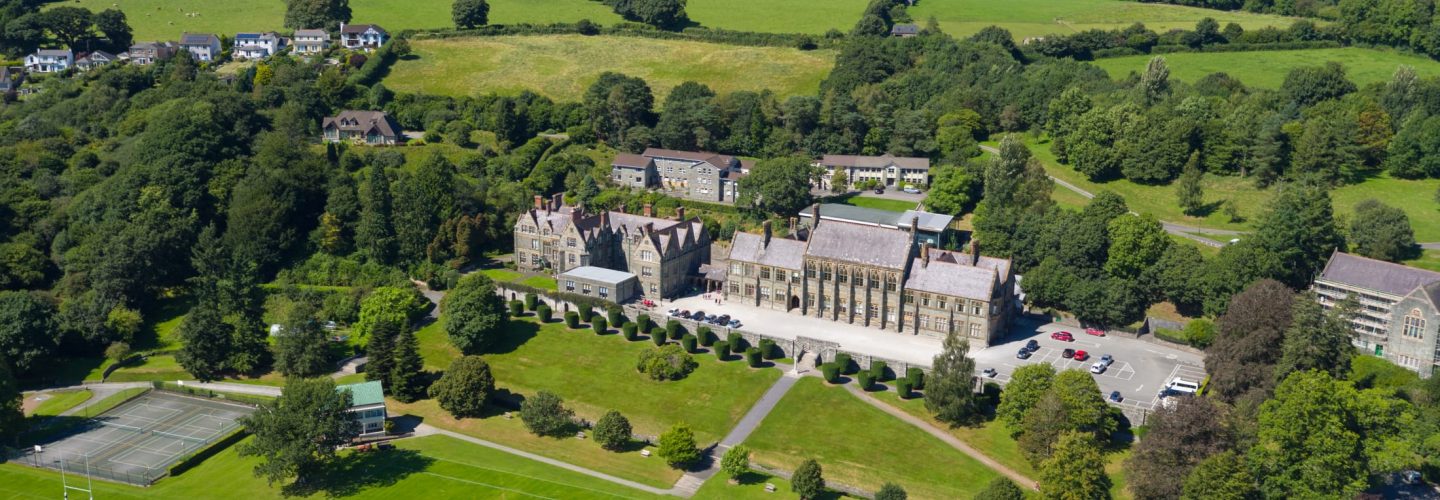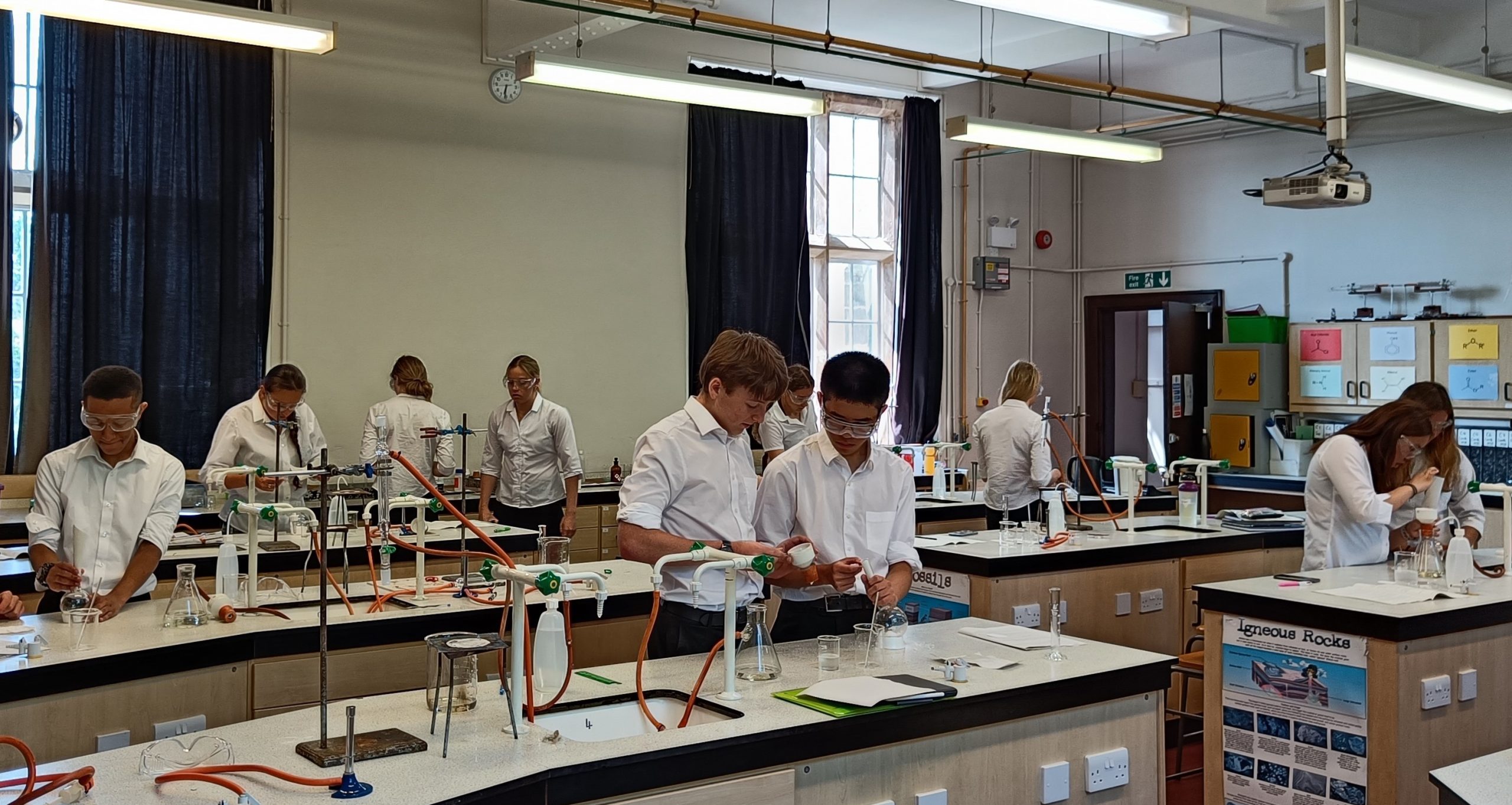Aspirin is one of the most widely used medications in the world as both an effective painkiller and to treat a range of ailments including preventing strokes. It is relatively easy to produce and, last week, our Lower Sixth chemists took on the challenge of producing their own aspirin from one of the intermediates (salicylic acid) into pure aspirin. This multi-stage process included both the synthesis and purification in the lab before testing it for purity and analysing the crystals.
The synthesis coincided with our teaching of carbonyl and aromatic compounds. Pupils also covered a wide range of laboratory techniques with recrystallisation, thin-layer chromatography and melting point analysis.
This week, pupils borrowed an Infra-Red Spectroscopy machine from Plymouth University to further test the purity of their products. Fourier-transform Infrared Spectroscopy is an industry standard for the analysis and identification of organic compounds. The bench top device is able to detect small traces of organic chemical compounds and can identify impurities in products. After some training at the University of Plymouth it was loaned to Mr Pearson for two weeks to allow pupils to see the instrument first hand and test their own samples of aspirin.
With the instrument set up we have been able to test some known samples and compare our own products to them. Infrared spectroscopy is a common question in A Level Chemistry so it has been an invaluable lesson for pupils to see the device first hand. Whilst the device is physically quite small it is very powerful at identifying compounds. To have exposure to a device used in both industry and academia has been an invaluable experience for everyone.
Our thanks to Plymouth University Chemistry Department for their support.
Categories: Academic










